Your search “Keep%20the%20death%20penalty%abolished%20in%20the%philippines%20e%20e%20e%20e%20e ”
Document(s)
Facts and Figures 2022
By the World Coalition Against the Death Penalty, on 24 June 2022
2022
World Coalition
frMore details Download [ pdf - 241 Ko ]
Find the main facts and figures regarding the death penalty worldwide in 2021 and early 2022.
- Document type World Coalition
- Available languages Faits et chiffres 2022
Document(s)
Facts and Figures 2011
By World Coalition against the death penalty , on 10 October 2011
2011
Campaigning
Trend Towards Abolition
frMore details Download [ pdf - 100 Ko ]
Facts and Figures 2011
- Document type Campaigning
- Themes list Trend Towards Abolition
- Available languages Faits et chiffres 2011
Document(s)
Facts and Figures 2009
By World Coalition against the death penalty , on 10 October 2009
2009
Campaigning
Trend Towards Abolition
frMore details Download [ pdf - 95 Ko ]
Facts and Figures 2009
- Document type Campaigning
- Themes list Trend Towards Abolition
- Available languages Faits et chiffres 2009
Document(s)
21st World Day – Facts and Figures 2023
By the World Coalition Against the Death Penalty, on 12 June 2023
2023
Campaigning
World Coalition
frMore details Download [ pdf - 239 Ko ]
Find the main facts and figures regarding the death penalty worldwide in 2022 and early 2023.
- Document type Campaigning / World Coalition
- Available languages 21ème Journée Mondiale - Faits et chiffres 2023
Document(s)
Facts and Figures 2010
By World Day against the death penalty , on 10 October 2010
2010
Campaigning
Trend Towards Abolition
frMore details Download [ pdf - 81 Ko ]
Facts and Figures 2010
- Document type Campaigning
- Themes list Trend Towards Abolition
- Available languages Faits et chiffres 2010
Document(s)
Zimbabwe – Universal Periodic Review – Death Penalty – July 2021
By Eleos Justice, Monash University, on 15 July 2021
2021
NGO report
World Coalition
Zimbabwe
More details Download [ pdf - 271 Ko ]
This report addresses Zimbabwe’s compliance with its human rights obligations with respect to its use of the death penalty. The United Nations considers Zimbabwe a de facto abolitionist country. It has not carried out any executions since 2005. Courts, however, continue to sentence individuals to death, with 88 people currently on death row as of December 2020, after 8 sentences were commuted in April 2020. The new Zimbabwean Constitution (the “2013 Constitution”) has replaced the mandatory death penalty with a discretionary sentence for the crime of murder committed under aggravating circumstances. The 2013 Constitution further outlaws the imposition of the death penalty on women, men over the age of 70, and men under the age of 21 at the time the offence was committed. In its 2016 Universal Periodic Review, Zimbabwe noted all recommendations related to the death penalty, partly on the ground that Zimbabwean public opinion did not support abolition of death penalty. Since 2016, developments demonstrate a more positive attitude among the public and opinion leaders toward further reform and the abolition of death penalty.
This report focuses on various issues concerning the death penalty and related international human rights instruments, and on conditions of detention and acts of torture and ill treatment of people in detention. Specifically, this report recommends that Zimbabwe abolish the death penalty, improve detention conditions, ratify relevant human rights treaties, and increase resources dedicated to improving the justice system.
- Document type NGO report / World Coalition
- Countries list Zimbabwe
Document(s)
A/HRC/48/L.17/Rev.1 Resolution adopted by the Human Rights Council
on 2 June 2021
2021
International law - United Nations
aresfrruzh-hantMore details See the document
- Document type International law - United Nations
- Available languages A/HRC/48/L.17/Rev.1 قرار اعتمده جملس حقوق اإلنسايفA/HRC/48/L.17/Rev.1 Resolución aprobada por el Consejo de DerechosA/HRC/48/L.17/Rev.1 Résolution adoptée par le Conseil des droits de l’hommeA/HRC/48/L.17/Rev.1 Резолюция, принятая Советом по правам человекаA/HRC/48/L.17/Rev.1 人权理事会 月 日通过的决议
Document(s)
Blaming it on the past: Usages of the Middle Ages in contemporary discourses of the death penalty in England
By Death Penalty Research Unit (DPRU), University of Oxford, on 5 February 2024
2024
Academic Article
United Kingdom
More details See the document
Published in December 2023.
In popular, intellectual and political culture, the Middle Ages are intrinsically tied to violent images of public executions. To historians of the medieval period, this temporal attachment of the death penalty to a remote period is puzzling, especially since it is still widely enforced in the world today and was only relatively recently abolished in Europe. Capital punishment is not only a part of history, but a modern-day reality. Why, therefore, do we pin this punishment to the Middle Ages? This paper aims to analyse the discourses surrounding the usage of the Middle Ages in modern discussions on the death penalty, and to clarify medieval practices of capital punishment, showing how remote they are from our contemporary understanding
- Document type Academic Article
- Countries list United Kingdom
Document(s)
Efforts towards abolition of the death penalty: Challenges and prospects
By Death Penalty Research Unit (DPRU), University of Oxford, on 5 February 2024
Academic Article
Trend Towards Abolition
More details See the document
Published in December 2023.
This paper reflects on the role of international human rights treaties in promoting universal abolition and progressive restriction of the death penalty. It suggests that over the past quarter of a century a ‘new human rights dynamic’ has aimed to generate universal acceptance that however it is administered, the death penalty violates the human rights of all citizens exposed to it. Nevertheless, defences of capital punishment based on principles of national sovereignty are engrained in some parts of the world, particularly in Asia and the Middle East. The human rights project struggles to make inroads into such jurisdictions where political will is opposed to abolition, and trenchant protection of sovereignty threatens the very universality of these rights.
- Document type Academic Article
- Themes list Trend Towards Abolition
Document(s)
FHRI and PRI submission to the UN Sec-Gen report on the status of the death penalty in East Africa – Kenya and Uganda April 2012
By Penal Reform International, on 8 September 2020
2020
NGO report
Kenya
More details See the document
To date, Kenya and Uganda have not signed the Second Optional Protocol to the International Covenant on Civil and Political Rights and are not party to any international or regional treaty prohibiting the death penalty. While Kenya abstained from voting in the 2010 UN General Assembly moratorium resolution, Uganda voted against it and signed the note verbale of issociation.
- Document type NGO report
- Countries list Kenya
- Themes list Cruel, Inhuman and Degrading Treatment and Punishment, Discrimination, Country/Regional profiles,
Document(s)
Migratory dependency and the death penalty: Foreign nationals facing capital punishment in the Gulf
By Lucy Harry, Carolyn Hoyle , and Jocelyn Hutton Death Penalty Research Unit, Centre for Criminology, University of Oxford, on 30 January 2024
2024
Academic Article
Jordan
Kuwait
Lebanon
Qatar
Saudi Arabia
United Arab Emirates
More details See the document
Published on July 2, 2023
This article focuses on the cases of 664 foreign nationals, the majority of whom are migrant workers, under sentence of death across the Gulf states (including Jordan and Lebanon) between 2016 and 2021. The features of these cases suggest that they are inextricably linked to migrant workers’ dependency under the kafala system, with examples of migrants duped into smuggling drugs across the border by their migrant broker, and once in country, accounts of violent altercations due to disputes about exit visas, and in the case of migrant domestic workers, self-defence against sexual violence. Engaging with the burgeoning literature on immigration, exploitation and criminalisation, as well as scholarship on capital punishment, this article will explore the multiple and unique layers of dependency fostered by the kafala system that place migrant workers at higher risk of the death penalty in these Gulf jurisdictions.
- Document type Academic Article
- Countries list Jordan / Kuwait / Lebanon / Qatar / Saudi Arabia / United Arab Emirates
Article(s)
167 Ugandan death row inmates saved from gallows
on 19 September 2010
Recent figures show that a January ruling by the Ugandan supreme court making it illegal to keep people on death row for more than three years has saved 167 lives.
2010
Cruel, Inhuman and Degrading Treatment and Punishment
Uganda
Document(s)
Killing in the Name of God: State-sanctioned Violations of Religious Freedom
By Eleos Justice, Monash University, on 10 November 2021
2021
Academic report
Brunei Darussalam
Iran (Islamic Republic of)
Maldives
Mauritania
Nigeria
Qatar
Saudi Arabia
Somalia
United Arab Emirates
Yemen
More details See the document
As of 2020, blasphemy was formally criminalised in some 84 countries. As many as 21 countries criminalised apostasy as of 2019. The legal penalties for such offences range from fines to imprisonment to corporal punishment—and in at least 12 countries, the death penalty.
This report examines the extent to which States commit, or are complicit in, killings that violate religious freedom. Focussing on the 12 States in which offences against religion are lawfully punishable by death, we examine four different types of State-sanctioned killings on the basis of religious offence (apostasy, blasphemy, or alike) or affiliation (most commonly, membership of a religious minority): judicial executions, extrajudicial killings, killings by civilians, and killings by extremist groups. We explore the relationship between the retention of the death penalty for religious offences and other forms of State-sanctioned killings motivated by alleged religious offending or by religious identity.
- Document type Academic report
- Countries list Brunei Darussalam / Iran (Islamic Republic of) / Maldives / Mauritania / Nigeria / Qatar / Saudi Arabia / Somalia / United Arab Emirates / Yemen
Document(s)
Investigating Attitudes to the Death Penalty in Indonesia Part One – Opinion Formers: An Appetite for Change
By Carolyn Hoyle - The Death Penalty Project, in partnership with LBH Masyarakat and the University of Indonesia, on 28 June 2021
2021
NGO report
Drug Offenses
Indonesia
Public Opinion
More details See the document
In 2019-20, The Death Penalty Project, in partnership with LBH Masyarakat and the University of Indonesia, commissioned Professor Carolyn Hoyle, of The Death Penalty Research Unit at the University of Oxford to conduct research investigating attitudes towards the death penalty in Indonesia.
The findings have been presented in a two-part report; the first details the findings of a nuanced public survey and the second details the findings of interviews conducted with opinion formers.
- Document type NGO report
- Countries list Indonesia
- Themes list Drug Offenses / Public Opinion
Document(s)
Educational guide 2009
By World Coalition against the death penalty , on 10 October 2009
2009
Campaigning
Trend Towards Abolition
esfrruzh-hantMore details Download [ pdf - 536 Ko ]
With this Educational Guide, the World Coalition
Against the Death Penalty is launching a collaborative
initiative which aims to improve the contributions of all.
This guide will be regularly supplemented by new infor-
mation and themes. It will also be frequently updated
on the Coalition’s website (www.worldcoalition.org).
On behalf of the members of the World Coalition in
more than thirty countries across the world, we thank
you for your support.
- Document type Campaigning
- Themes list Trend Towards Abolition
- Available languages Guía pedagógica Jornada mundial 2009Guide pédagogique 2009Руководство по обучению организации мероприятий по случаю Всемирного дня борьбы против смертной казни2009 年世界反死刑日
Document(s)
Abolitionnist portrait
By World Coalition against the death penalty , on 10 October 2004
2004
Campaigning
Trend Towards Abolition
frMore details See the document
Abolitionnist portrait
- Document type Campaigning
- Themes list Trend Towards Abolition
- Available languages Portrait d'abolitionnistes
Document(s)
Mobilization Kit 2010
By World Coalition against the death penalty , on 10 October 2010
2010
Campaigning
Trend Towards Abolition
More details Download [ pdf - 138 Ko ]
Every year, the World Coalition Against the Death
Penalty (WCADP) calls for local initiatives worldwide.
The events involve citizens and organisations
supporting the abolition of capital punishment and
comprise debates, concerts, press releases or any
other action which would give the global abolition claim
an international boost.
This Day is aimed at both political leaders and public
opinion in countries where the death penalty has or
has not yet been abolished: people have to remember
the meaning of abolition and pass it down through the
generations.
They must be aware that justice without the death
penalty is possible
- Document type Campaigning
- Themes list Trend Towards Abolition
Document(s)
Abolition of the Death Penalty in the Eastern Caribbean and Barbados
on 15 December 2020
2020
Lobbying
Barbados
Trend Towards Abolition
More details Download [ pdf - 2611 Ko ]
Greater Caribbean for Life has launched its educational toolkit to assist activists and organisations as they work toward abolishing the death penalty in the Greater Caribbean. The production of this toolkit forms part of GCL’s activities under its EU partnered project to educate on death penalty abolition in the Eastern Caribbean and Barbados.
The launch of the toolkit is timely as a few of these target countries recently voted against adopting the UN Moratorium on the use of the death penalty and countries that had previously chosen to abstain have now firmly voted against the resolution.
GCL members condemn the rise of violent crime in our region and express solidarity and compassion with the victims of crime, however, we reject the notion that capital punishment will act as a deterrent or foster respect for life in our communities.
It is our hope that this toolkit will assist in promoting respect for the right to life for all human beings in the Caribbean region.
- Document type Lobbying
- Countries list Barbados
- Themes list Trend Towards Abolition
Document(s)
Facts and Figures 2007
By World Coaliton against the death penalty , on 10 October 2009
2009
Campaigning
Trend Towards Abolition
frMore details Download [ pdf - 24 Ko ]
Facts and Figures 2007
- Document type Campaigning
- Themes list Trend Towards Abolition
- Available languages Faits et chiffres 2007
Document(s)
Facts and Figures 2008
By World Coalition against the death penalty , on 10 October 2008
2008
Campaigning
Trend Towards Abolition
frMore details See the document
Facts and Figures 2008
- Document type Campaigning
- Themes list Trend Towards Abolition
- Available languages Faits et chiffres 2008
Document(s)
Facts and Figures 2013
on 10 October 2013
2013
Campaigning
Trend Towards Abolition
aresMore details Download [ pdf - 115 Ko ]
Facts and Figures world day against the death penalty 2013
- Document type Campaigning
- Themes list Trend Towards Abolition
- Available languages Faits et chiffres 2013PENA DE MUERTE HECHOS Y DATOS
Document(s)
Mobilization Kit 2008
By World Coalition against the death penalty , on 10 October 2008
2008
Campaigning
Trend Towards Abolition
frMore details Download [ pdf - 137 Ko ]
Every year, the World Coalition Against the Death
Penalty (WCADP) calls for local initiatives worldwide.
The events involve citizens and organisations
supporting the abolition of capital punishment and
comprise debates, concerts, press releases or any
other action which would give to the global abolition
claim an international boost.
This Day is intended for both political leaders and
public opinion of countries where the death penalty
has or not been abolished yet: people have to
remember the meaning of abolition and pass it down
through generations.
They must be aware that a justice without death
penalty is possible.
- Document type Campaigning
- Themes list Trend Towards Abolition
- Available languages Kit de mobilisation 2008
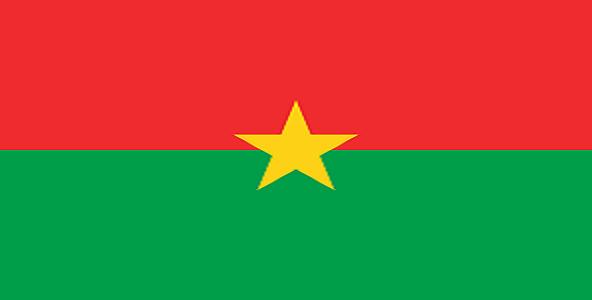
Article(s)
Burkina Faso has joined the global trend toward abolition of the death penalty in Africa
By International Federation of Human Rights (FIDH), on 6 June 2018
On 31 May, the Burkinabe Parliament abolished the death penalty by adopting a new criminal code that excludes it from the arsenal of sentences regardless of crimes considered and circumstances in which they were committed. Thus, Burkina Faso become the 144th States in the World and the 40th African State abolitionist in law and in practice. Our organizations welcome this major step which strengthens the Burkinabe legal framework for the protection of human rights and is part of regional and international movement in favour of the abolition of this inhuman, ineffective and irreversible punishment.
2018
Burkina Faso

Article(s)
Guatemala abolishes the death penalty for ordinary crimes
By World Coalition Against the Death Penalty, on 31 October 2017
On October 24, the Constitutional Court of Guatemala has abolished the death penalty in civil cases.
2017
Guatemala
Document(s)
The Death Penalty in the OSCE Area: Background Paper 2020
By Organization for Security and Co-operation in Europe (OSCE), on 9 October 2020
2020
Regional body report
Belarus
United States
ruMore details See the document
This paper updates The Death Penalty in the OSCE Area: Background Paper 2019. It is intended to provide a concise update to highlight changes in the status of the death penalty in OSCE participating States since the previous publication and to promote constructive discussion of the issue. It covers the period from 1 April 2019 to 31 March 2020. Special Focus: Is the death penalty inherently arbitrary?
- Document type Regional body report
- Countries list Belarus / United States
- Available languages Смертная казнь в регионе ОБСЕ: Справочный документ 2020 года
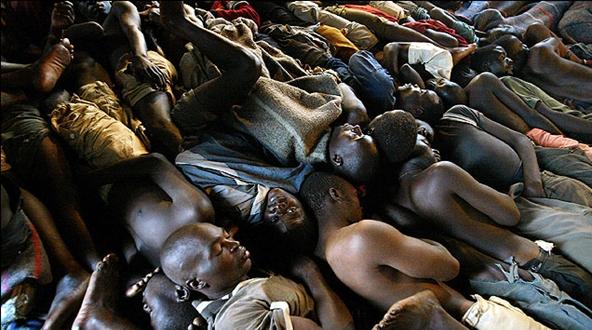
Article(s)
Malawi – five years after abolishing the mandatory death penalty
By Emile Carreau, on 19 September 2012
In 2007 abolitionists celebrated when the High Court of Malawi abolished the mandatory death penalty. In what become known as the Kafanteyeni ruling the mandatory death penalty was deemed by the bench as unconstitutional as it amounts to an arbitrary deprivation of life, denies an accused the right to a fair trial and the right to be free from inhuman and degrading treatment.
2012
Malawi
Document(s)
Resolution 77/274 – Moratorium on the use of the death penalty
By United Nations General Assembly, on 8 August 2022
2022
United Nations report
More details See the document
The present report provides information on the implementation of General Assembly resolution 75/183. It discusses developments towards the abolition of the death penalty and the establishment of moratoriums on executions and highlights trends in the use of the death penalty, including the application of international standards relating to the protection of the rights of those facing the death penalty. The report discusses conditions of detention for persons on death row, the application of the death penalty to foreign nationals, its disproportionate and discriminatory application to women, its disproportionate impact on poor and economically vulnerable individuals, its discriminatory use relating to persons exercising their human rights, and various initiatives for advancing its abolition. The report welcomes progress made towards universal abolition in States representing different legal systems, traditions, cultures and religious backgrounds. It concludes that all measures aimed towards limiting the application of the death penalty constitute progress in the protection of the right to life.
- Document type United Nations report
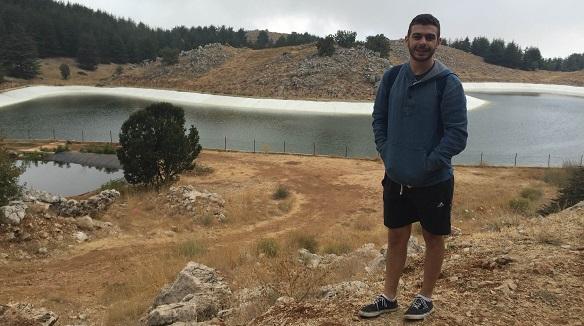
Article(s)
If I do not accept that a terrorist kills me, I do not accept either to kill a terrorist
By Tiziana Trotta, on 18 October 2016
Khachig Ghosn is a 22-year-old student of social work at the Lebanese University. Three years ago, he witnessed an explosion in Beirut. Despite this dramatic experience, he is against the use of the death penalty and he is convinced that capital executions have no deterrent effect on terrorism.Ghosn is aware that changes in his country take a very long time, but he has a positive long-term vision and hopes that the death penalty will be abolished.
2016
Lebanon
Murder Victims' Families
Terrorism
Document(s)
Detailed factsheet – World Day 2024 & 2025
By World coalition against the death penalty, on 11 July 2024
2024
Campaigning
World Coalition
frMore details Download [ pdf - 485 Ko ]
- Document type Campaigning / World Coalition
- Available languages Fiche d'information détaillée - journée mondiale 2024 & 2025
Document(s)
The Physician in the Execution Chamber: No Such Thing as the Normal Pain of Dying
By Joel Zivot, California Western International Law Journal , on 1 February 2024
2024
Academic Article
United States
More details See the document
Published in October 2023.
For capital punishment to be lawful in the United States of America, it must occur without cruelty, a requirement of the traditional reading of the Eighth Amendment. There has never been a consensus on what form of execution is cruel, although some historic practices are shockingly barbaric to modern sensibilities— I think of the “draw and quarter” technique. The family of the murdered victim may fairly argue that the murderous behavior should be the minimum degree of cruelty meted out. But western countries eschew that standard and seek moderate forms, partly to deter by punishment and partly as a forfeit of the murderer’s life for the victim’s life when execution is allowed in that state. Certainly, there is substantial support for continuation of execution in states that allow it. The judges must be respectful of that, but still, they must respect the 8th amendment. At present, the prevalent method of execution in the United States is “lethal injection” using injectable medicines in very high doses that are repurposed to kill the prisoner. Because it is impossible to ask an executed individual about the cruelty experienced during their own death, the state instead relies on the empathy of witnesses to gauge the cruelty of a prisoner’s execution. Lethal injection was expected to be a bloodless execution and aimed to eliminate the visible appearance of cruelty, sometimes through the use of a paralytic.
- Document type Academic Article
- Countries list United States
Document(s)
Women and The Death Penalty in Kenya: Essays on the Gendered Perspective of the Death Penalty
on 2 February 2024
2024
NGO report
Death Row Conditions
Fair Trial
Gender
Kenya
Women
More details See the document
This publication seeks to make visible the gender and intersectional discrimination faced by women in the judicial process leading to the death penalty. Through the various articlesin this publication, the authors bring to light the reality of women facing the death penalty through a different lens.
The first author, Shekinah Bright Kiting’a, in making a compelling case for abolition of the death penalty, explores how the death penalty uniquely affects women in the context of motherhood. Further, she highlights the rights and well-being of the children affected by their mothers’ death sentences, revealing flaws in our legal and ethical systems. With the overall aim of advocating for its abolition due to its significant impact on both parenthood and children’s rights, her article seeks to push for reforms that honour motherhood and prioritize children’s well-being in these difficult circumstances.
Kenaya Komba dissects gender disparity in the judicial system by exploring the intersection of domestic violence and the death penalty. In making a case for a restorative approach to justice, her article analyses the impact of capital punishment on victims of domestic violence and the systemic injustice and biases they continue to grapple with. Her elaborate analysis of the Constitution of Kenya, 2010 and the Protection Against Domestic Violence Act, 2016, highlights the urgent need for reform in the legal system.
While Analyzing the role the media plays in shaping perceptions of women on death row, Patricia Chepkirui evaluates the implications of positive and negative media portrayals of such women by highlighting the ethical responsibilities of media in the coverage of women on death row cases. The article ultimately underscores the significance of responsiblemedia coverage in ensuring that media exposure of cases of women on death row is fair,balanced, and respectful of their rights and dignity.
Alex Tamei delves into the intricacies of abuse, gender-based violence, and trauma as mitigating factors in death penalty sentencing for women. His article comparatively analyses two Kenyan cases of murder in retaliation to intimate partner violence, seeking to shed light on the plight of victims of gender-based violence. The article effortlessly brings out the nexus between the death penalty and intimate partner violence and makessolid recommendations for change.
The fifth author, Patience Chepchirchir, delves into the nexus between psychological abuse and provocation. Through her article, she brings out the scope of psychological abuse while focusing on the linkage between emotional abuse and provocation and how the same can be considered as mitigating factors. Through an elaborate analysis of case law, she makes a case for psychological abuse of women as a mitigating circumstance during sentencing.
Stella Cherono’s article reflects on the intersectional discrimination faced by women in the criminal trial process leading to death row. The article highlights the complex and overlapping forms of discrimination women experience during the pretrial, trial and sentencing stages. Through her comprehensive analysis of gendered pathways to offending and imprisonment, she challenges how society perceives discrimination.
Loraine Koskei Interrogates the emerging jurisprudence on Intimate Partner Violence.Her article lays out the gendered factor in the commissioning and sentencing of women convicted of murder and offers possible recommendations.
- Document type NGO report
- Countries list Kenya
- Themes list Death Row Conditions / Fair Trial / Gender / Women
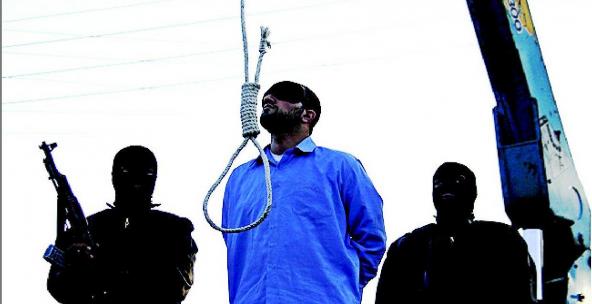
Article(s)
Highest execution numbers in Iran in 10 years
By Mahmood Amiry-Moghaddam, on 13 March 2012
Iran Human Rights has published its annual report on the death penalty in Iran in 2011. IHR’s international spokesperson Mahmood Amiry-Moghaddam says the Iranian authorities are keeping the number of executions high because they use the death penalty as a political tool.
2012
Drug Offenses
Iran (Islamic Republic of)
Juveniles
Women
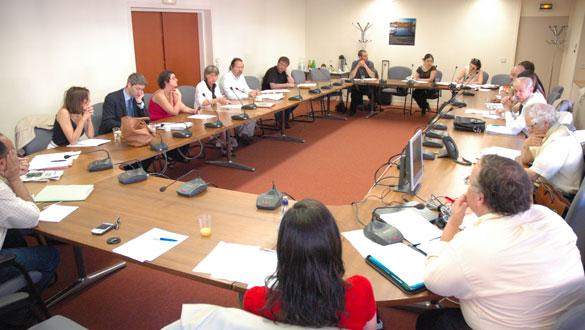
Article(s)
Statutes of the World Coalition Against the Death Penalty
on 26 June 2011
Amended by the General Assembly on June 26, 2011
2011
Article(s)
1,700-mile “Walk4Life” across the US
on 13 March 2008
American hip-hop artist Andre Latallade, also known as Capital-“X”, will walk 1,700 miles from New Jersey to Texas from March 31 to campaign against the death penalty.
2008
Drug Offenses
United States
Article(s)
FIDH report on Vietnam: an update on death penalty statistics
on 19 September 2010
The FIDH and the Vietnam Committee on Human Rights released a new report, From Visions to Facts: Human Rights in Vietnam under its Chairmanship of ASEAN, on 16 August 2010.
2010
Drug Offenses
Moratorium
Viet Nam
Viet Nam
Article(s)
Taiwan activists battle in death penalty-triggered political crisis
on 19 March 2010
After Taiwan’s justice minister was forced to step down for not signing execution warrants, local and international abolitionists rushed in to restore a balanced debate and protect the country’s 44 death row inmates.
2010
Moratorium
Public Opinion
Taiwan
Taiwan
Article(s)
World Congress ends with words of hope
on 28 February 2010
Powerful words by the speakers of the solemn ceremony that concluded the 4th World Congress Against the Death Penalty gave hope to the participants as they prepared to head home.
2010
Switzerland
Article(s)
Mongolian president calls for abolition
on 18 January 2010
In a vibrant speech before the parliament on January 14, President Elbegdorj Tsakhia of Mongolia developed all the arguments put forward by the abolitionist community.
2010
Clemency
Mongolia
Moratorium
Article(s)
Abolition in the US: what role for overseas activists?
on 3 February 2008
As part of its 2008 annual conference, the National Coalition to Abolish the Death Penalty (NCADP) organised a brainstorming session to explore the question: “How can the international community support us in our efforts to abolish the death penalty in the US?”
2008
Clemency
Public Opinion
United States
Article(s)
Global outrage at Iranian juvenile execution
on 6 May 2009
Human rights organisations and governments worldwide have slammed the Iranian authorities for the illegal execution of Delara Darabi, a young woman convicted of a murder committed when she was 17.
2009
Innocence
Iran (Islamic Republic of)
Juveniles
Article(s)
Support grows for Davis as his execution is stayed
on 26 October 2008
Troy Davis’s execution was stayed on October 23, four days before he was scheduled to die, as activists took action on his behalf all over the world.
2008
United States
Article(s)
State-sponsored report finds California’s death penalty is “dysfunctional”
on 9 July 2008
A recent report from a far-reaching commission established by the Californian senate on the administration of capital punishment in the state concluded that “the system is broken”.
2008
Innocence
United States
Article(s)
What now for Mumia?
on 28 April 2008
On 27 March, a US federal appeals court overturned Mumia Abu-Jamal’s death sentence, but not his conviction for murder. His lead counsel Robert R. Bryan gives his reaction to the ruling and the next steps in America’s most high-profile capital case.
2008
Fair Trial
United States

Article(s)
Groundbreaking Survey Reveals Iranians’ Attitudes Towards the Death Penalty
By GAMAAN Institute / World Coalition Against the Death Penalty, on 23 October 2020
This survey, conducted by the GAMAAN Institute between the 3rd and the 11th of September 2020, includes responses from about twenty thousand people living inside Iran.
2020
Iran (Islamic Republic of)
Public Opinion
Article(s)
Youths must stand up against the death penalty!
on 17 September 2007
The Federation of Liberal Students (FEL), a Belgian political organisation, has just joined the World Coalition. FEL president Arnaud Van Praet explains his organisation’s mobilisation against capital punishment.
2007
Belgium
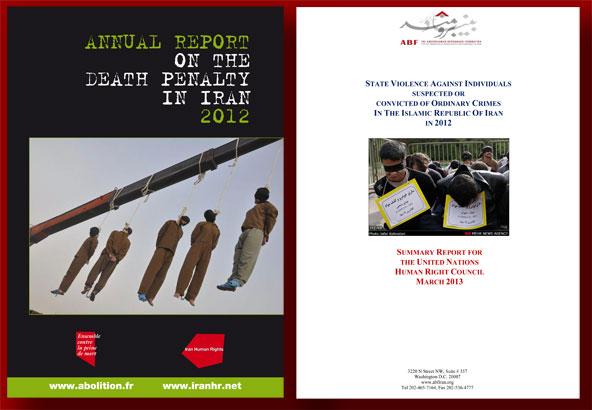
Article(s)
“Iran kills for possession of less than 50g of drugs”
By Thomas Hubert, on 9 April 2013
Annual reports published by two World Coalition member organizations of Iranian exiles expose the disproportionate use of the death penalty in Iran, mostly against drug users and traffickers.
2013
Drug Offenses
Iran (Islamic Republic of)
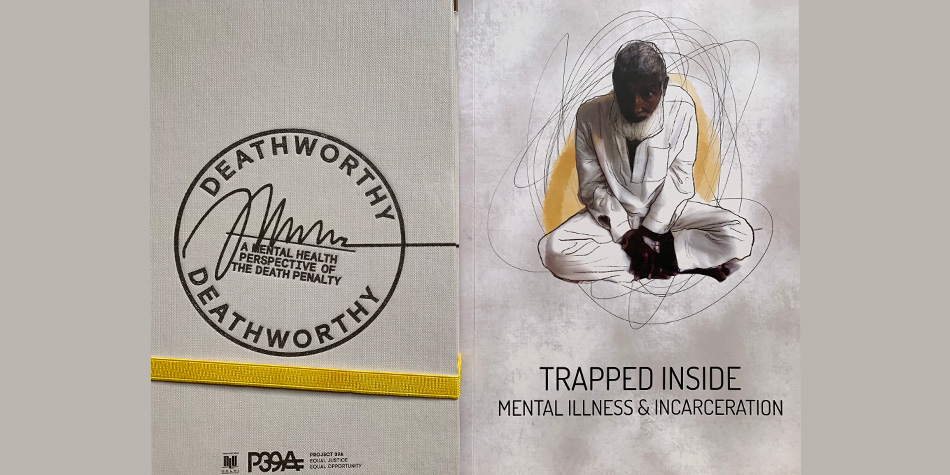
Article(s)
Over 8,000 people on death row in South Asia
By Aurelie Placais, staff, on 3 May 2022
With few executions but one of the biggest death rows in the world, South Asia is at a crossroad. Recent publications explore mental health on death row and social and economic background of people sentenced to death in Bangladesh, India, the Maldives, Pakistan and Sri Lanka.
2022
Bangladesh
Death Row Conditions
India
Maldives
Mental Illness
Pakistan
Sri Lanka
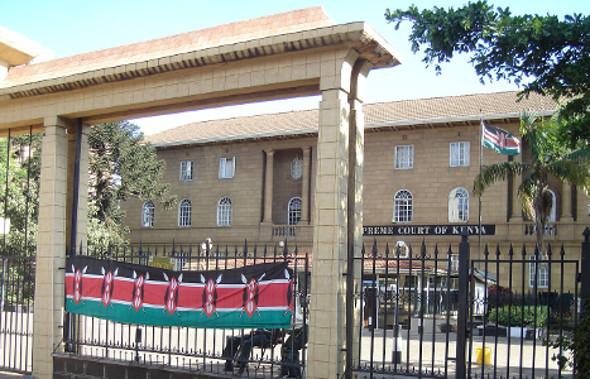
Article(s)
The Supreme Court of Kenya declares the mandatory death penalty unconstitutional
By Thalia Gerzso, on 23 January 2018
On December 14, 2017, the Supreme Court of Kenya declared the mandatory death penalty unconstitutional. This landmark decision puts an end to several years of uncertainties and constitutes an additional step towards the abolition of the death penalty in the country.
2018
Kenya
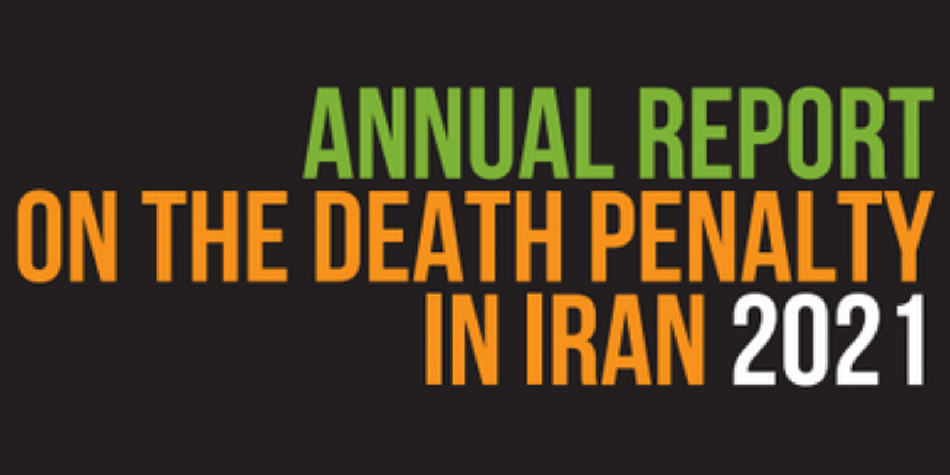
Article(s)
Death Penalty in Iran: Sharp Increase in Executions
By Anissa Aguedal, on 10 June 2022
An alarming situation On 28 April 2022, Iran Human Rights (IHR) and Ensemble contre la peine de mort (ECPM) released their 14th Annual Report on the Death Penalty in Iran, revealing an increase in the number of executions in 2021. At least 333 people were executed and 83,5% of these executions were not announced by […]
2022
Iran (Islamic Republic of)
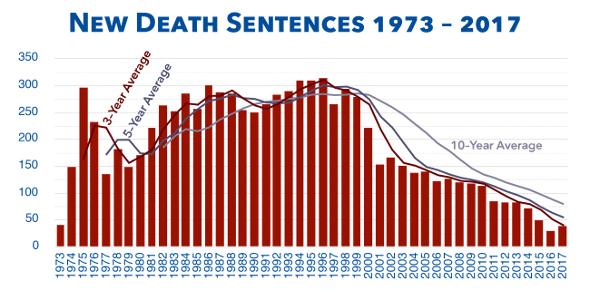
Article(s)
U.S. sees second fewest death sentences and executions in 25 Years
By Death Penalty Information Center, on 22 March 2018
Public support for the death penalty drops to 45-Year low as four More death-row prisoners Exonerated in 2017. “The Death Penalty in 2017: Year End Report” is now available.
2018
United States
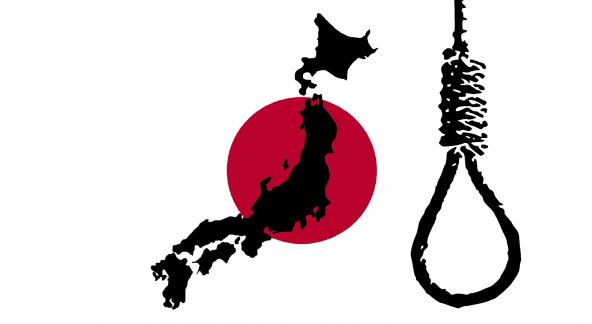
Article(s)
Regarding the execution in Japan of seven people
By World Coalition Against the Death Penalty, on 10 July 2018
STATEMENT – WORLD COALITION AGAINST THE DEATH PENALTY The World Coalition Against the Death Penalty would like to express its sympathy and support to all courageous anti-death penalty activists who have fought bravely to try to prevent the executions of seven people in Japan on the same day, on 6 July. The World Coalition calls […]
2018
Japan
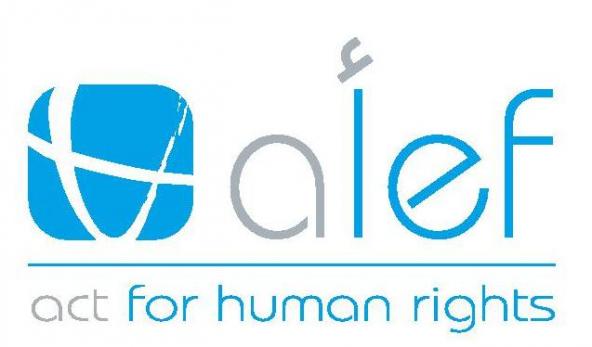
Member(s)
Act for Human Rights (ALEF)
on 30 April 2020
Act for Human Rights previously know as “Association libanaise pour l’éducation et la formation” core mandate is Monitoring and Advocacy. Its main concern are Human Rights issues, thus the organization has been advocating against death penalty. Currently our project activities are the following: Death Penalty Abolition Activities in Lebanon- ALEF – act for human rights […]
2020
Lebanon
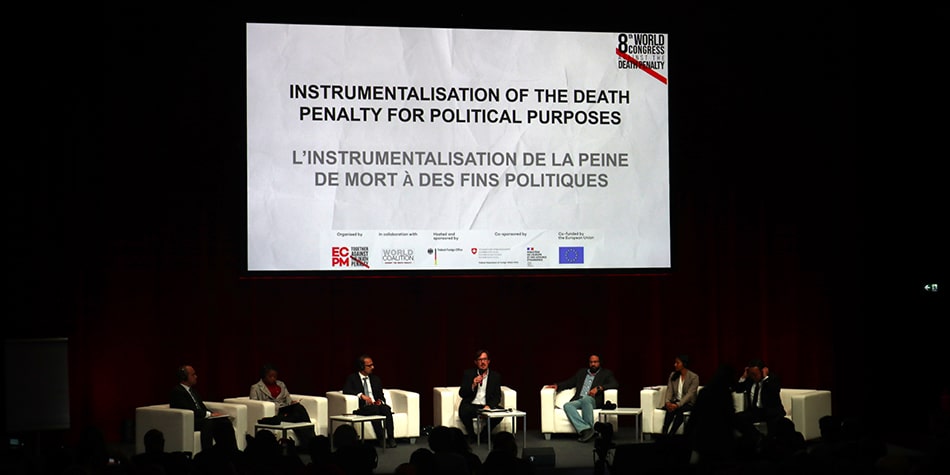
Article(s)
How the Death Penalty is Politicized: A Reflection on the 8th World Congress Against the Death Penalty
By Dunia Schaffa, on 27 January 2023
During the 8th World Congress Against the Death Penalty, in Berlin Germany, the phrase “the death penalty is being used as a political tool” was used frequently – in panels, in round tables, in speeches, even amongst the participants getting a coffee in between Congress events.
2023
Iran (Islamic Republic of)
United States
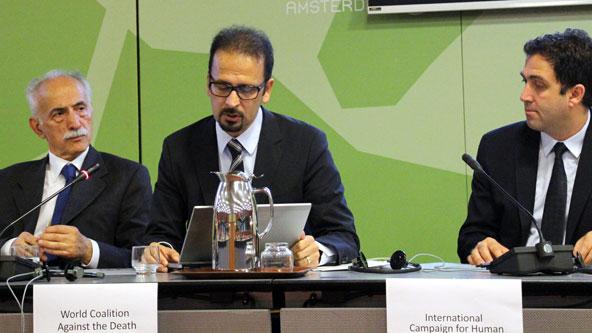
Article(s)
NGOs join forces to tackle capital punishment at Iran’s rights review
By Thomas Hubert, on 30 October 2014
Several World Coalition members are among organisations co-ordinating their efforts to help the international community put pressure on Iran over its use of the death penalty.
2014
Iran (Islamic Republic of)

Article(s)
Notes on the Supreme Court Trial in the Chen Fu-hsiang Case: Life or Death Debates in the Style of ChatGPT
By Lin Tzu-Wei (Legal Director of the Taiwan Alliance to End the Death Penalty), on 14 July 2023
Article first published in april on TAEDP’s website Return of life or death debates Following the previous oral arguments on death penalty cases at the Supreme Court in 2021, another life or death debate took place in April this year. This time, I had the opportunity to attend the oral arguments of the “Chen Fu-hsiang […]
2023
Taiwan
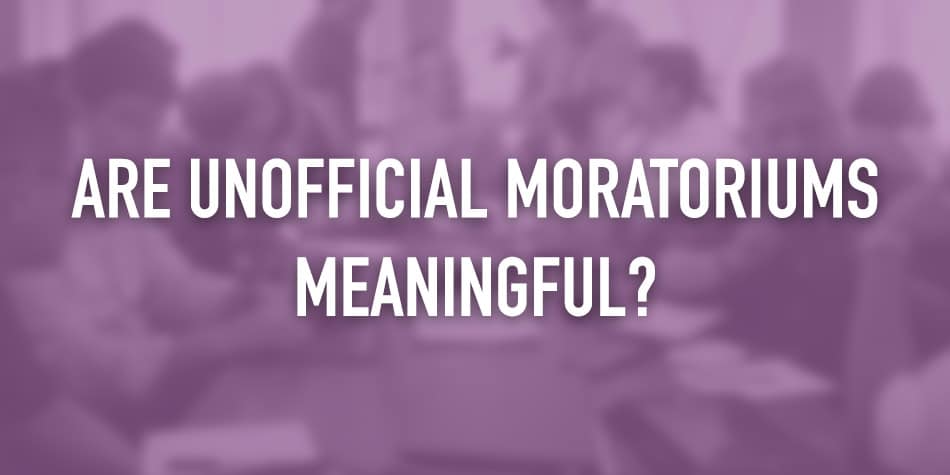
Article(s)
Importance of understanding phases of abolition: the danger of ‘abolitionist in practice’
By Venus Aves, Bronwyn Dudley, and Shahindha Ismail, on 6 November 2023
In July 2023, the World Coalition hosted a seminar in Malaysia in the context of its “Countries at Risk” project. This subject of informal moratoriums solicited much interest as participants considered preventative strategies for stopping a return to the death penalty, and what environmental factors need to be considered to implement those strategies. This article […]
2023
Moratorium
Article(s)
World Day campaign launched!
on 13 August 2007
The countdown to the fifth World Day Against the Death Penalty on October 10 has begun. It will focus on the proposed resolution against capital punishment to be discussed in the UN this autumn.
2007
Moratorium
Document(s)
The Death Penalty in 2023: Year End Report
By The Death Penalty Information Center (DPIC), on 25 January 2024
2024
NGO report
Public Opinion
United States
More details See the document
Published on December 01, 2023.
Innocence cases dominated much of the media’s attention on death penalty cases in 2023. While these prisoners were largely unsuccessful in the courts, there was unprecedented support for their claims from state legislators, prosecutors, judges, and other elected officials, some of whom declared themselves newly disillusioned with use of the death penalty in their state. This year is the 9th consecutive year with fewer than 30 people executed (24) and fewer than 50 people sentenced to death (21, as of December 1). The 23 men and one woman who were executed in 2023 were the oldest average age (tied with 2021) and spent the longest average number of years in prison in the modern death penalty era before being executed. As in previous years, most prisoners had significant physical and mental health issues at the time of their executions, some of which can be attributed to the many years they spent in severe isolation on death row. Continued difficulties obtaining lethal injection drugs led some states to explore new, untested methods of execution or revive previously abandoned methods. Other states enacted or continued pauses on executions while the state’s method of execution was studied.
- Document type NGO report
- Countries list United States
- Themes list Public Opinion
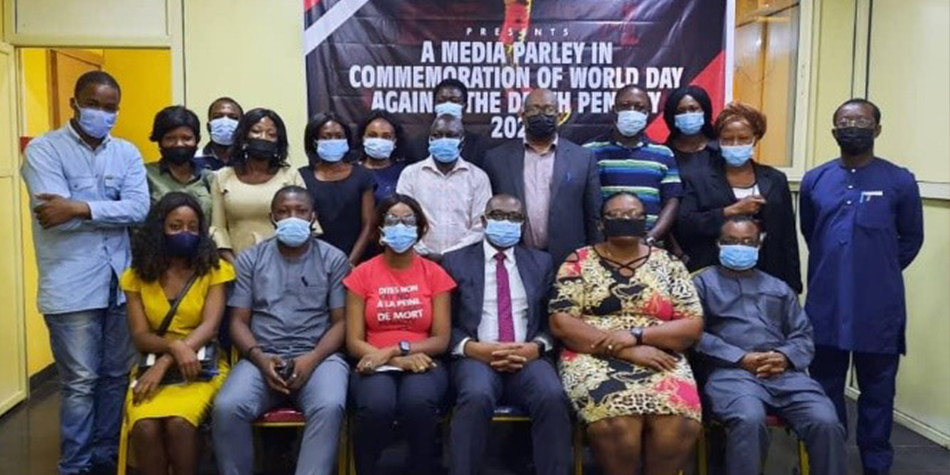
Article(s)
Women Sentenced to Death Showcased on the 19th World Day Against the Death Penalty
By Elise Garel, on 3 December 2021
With the theme “Women sentenced death: an invisible reality”, the 19th World Day Against the Death Penalty aimed to highlight the issues faced by women who are sentenced to death, executed, pardoned or exonerated around the world.
2021
Cameroon
Indonesia
Iran (Islamic Republic of)
Morocco
Nigeria
Pakistan
Sierra Leone
United States
Women
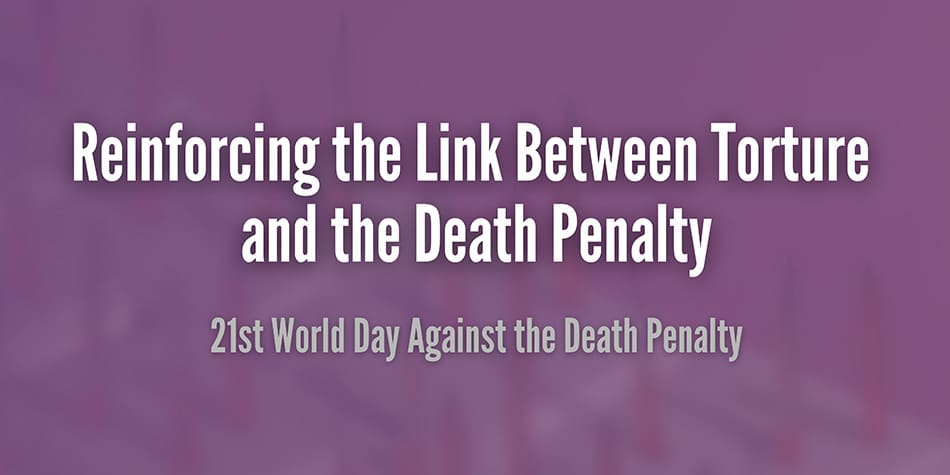
Article(s)
Reinforcing the Link Between Torture and the Death Penalty: 21st World Day Against the Death Penalty
By Venus Aves, on 17 November 2023
“There is no way in today’s world to apply the death penalty in a legal way, in a way that does not violate international law.” This was the bold and unequivocal assertion of former UN Special Rapporteur on Torture Juan Méndez in an online discussion with UN experts and exonerees organized by the World Coalition […]
2023
Cruel, Inhuman and Degrading Treatment and Punishment
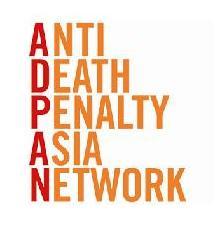
Member(s)
Anti-Death Penalty Asia Network (ADPAN)
on 30 April 2020
The Anti-Death Penalty Asia Network (ADPAN) was founded in Hong Kong on the World Day against the Death Penalty in 2006. In 2014, at its first General Meeting in Taipei, Taiwan, Anti-Death Penalty Asia Network (ADPAN) members approved ADPAN’s Constitution, and ADPAN’s first Executive Committee was elected. ADPAN, an independent Asia-Pacific network committed to working […]
2020
Malaysia
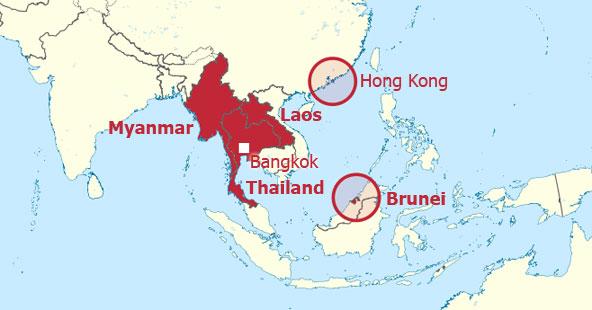
Article(s)
Moving away from the death penalty in Asia
By Sandra Babcock (DeathPenaltyWorldwide.org) in Bangkok, on 25 October 2013
Following up on the World Day Against the Death Penalty, successive meetings in Thailand and in China highlight decreasing support for capital punishment among Asian governments and public opinion.
2013
Brunei Darussalam
China
Japan
Lao People's Democratic Republic
Moratorium
Myanmar
Public Opinion
Thailand
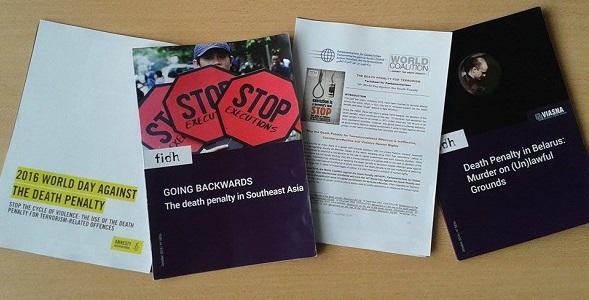
Article(s)
Eager to learn more about the death penalty? Abolitionist civil society around the world answered your call!
By Elise Guillot, on 8 November 2016
10 October saw the release of several publications and tools to raise awareness on the death penalty in all regions of the world. Take a look!
2016
Terrorism
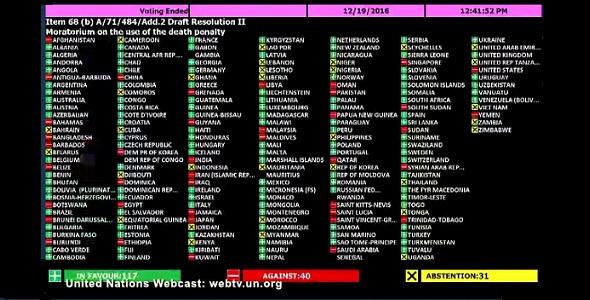
Article(s)
The UN General Assembly voted overwhelmingly for a 6th resolution calling for a universal moratorium on executions
By Elise Guillot et Aurélie Plaçais, on 20 December 2016
On 19 December 2016, with 117 States voting in favour of the resolution, the UN member states reasserted their support for a universal moratorium on the use of the death penalty.
2016
Clemency
Moratorium
Article(s)
Sweden and Amnesty International raise death penalty issue in New York
on 7 October 2009
Upcoming United Nations resolutions for a moratorium on executions and progress towards abolition across Africa were among the subjects discussed on the fringe of the UN General Assembly in New York.
2009
Moratorium
Sweden
United States
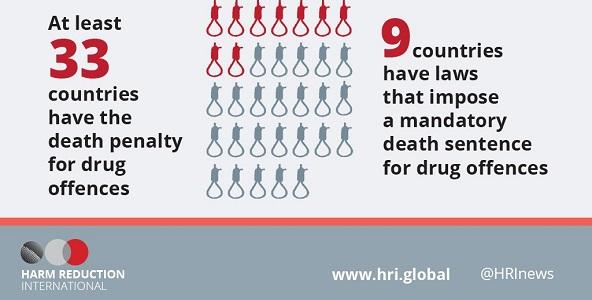
Article(s)
The Death Penalty for Drug Offences, A Global Overview 2017
By Harm Reduction International, on 26 March 2018
This report identifies 33 countries and territories that retain the death penalty for drug offences, including nine in which the sentence is mandatory. Hundreds of people continue to be executed for non-violent drug offences every year by a small minority of States committed to aggressively pursuing extremely harsh penalties for drug crimes, in clear violation of international law.
2018
Drug Offenses
Article(s)
Program Manager
By World Coalition Against the Death Penalty, on 15 October 2018
The World Coalition Against the Death Penalty recruits a program manager for a full time permanent position starting in January 2019.
2018

Article(s)
Child rights highlighted on the 17th World Day Against the Death Penalty
By Dinda Royhan, Majdoulin Sendadi, on 25 November 2019
On 10 October 2019, we celebrated the 17th World Day against the Death Penalty with various activities aimed to raise awareness on the death penalty and children as its unseen victims. Abolitionist forces in the two continents that gather most retentionist countries, Africa and Asia, were particularly active in raising awareness on the necessity to abolish the death penalty and its impacts on children this year.Through conferences, meetings, exhibitions, art installations, prison visits, radio broadcasts, flash mobs, dances and many other kinds of events, abolitionist forces in every continent took action to raise awareness about the use of death penalty in their national jurisdiction. The death penalty not only violates the fundamental right to life, but it also impacts the rights of children when the State sentences or executes a parent and has been found to have a long-term impact on the child’s best interest.
2019
Juveniles

Article(s)
The Death Penalty in Human Rights Watch “World Report 2020”
By Majdoulin Sendadi, on 6 February 2020
HRW, a member organization of the World Coalition Against the Death Penalty, focused its report on human rights practices in almost 100 countries, including on abuses in civil and political rights.
2020

Article(s)
UN High Level Panel on the Death Penalty and Deterrence
By Grace O'Connor, on 25 February 2021
The UN Biennial High Level Panel on the Death penalty focused on the deterrent effect capital punishment has on crime. Representatives from member states, NGOs and NHRIs made statements to the high level panel discussing the deterrent theory.
2021
Public Opinion
Document(s)
The Death Penalty in 2022: Year End Report
By Death Penalty Information Center, on 16 December 2022
2022
NGO report
United States
More details See the document
In a year awash with incendiary political advertising that drove the public’s perception of rising crime to record highs, public support for capital punishment and jury verdicts for death remained near fifty-year lows. Defying conventional political wisdom, nearly every measure of change — from new death sentences imposed and executions conducted to public opinion polls and election results — pointed to the continuing durability of the more than 20-year sustained decline of the death penalty in the United States.
The Gallup crime survey, administered in the midst of the midterm elections while the capital trial for the 2018 mass shooting at Marjory Stoneman Douglas High School in Florida was underway, found that support for capital punishment remained within one percentage point of the half-century lows recorded in 2020 and 2021. The 20 new death sentences imposed in 2022 are fewer than in any year before the pandemic, and just 2 higher than the record lows of the prior two years. With the exception of the pandemic years of 2020 and 2021, the 18 executions in 2022 are the fewest since 1991.
- Document type NGO report
- Countries list United States
Document(s)
Death Penalty Politics: The Fragility of Abolition in Asia and the Pacific
By Mark Finnane, Mai Sato and Susan Trevaskes, on 1 September 2022
2022
Academic report
More details See the document
Despite a steady increase worldwide in the number of states that have abolished the death penalty, capital punishment remains a troubling presence in the international order. The world’s leading powers in terms of economics and population include the retentionist states of China, India, Japan and the United States of America (USA). It seems there is no linear path to abolition, and its achievement is indeterminate. Yet, in international human rights law, death penalty abolition is a powerful norm embraced by half the countries across the world. While the majority of death penalty research has emanated from and focuses on the USA, well over 90 per cent of global executions occur in Asia, which lags behind the global trend towards abolishing the death penalty. Our symposium and this collection seek to bring perspectives from a variety of disciplines and methods—historical, legal, sociological, comparative— to bear on the questions of retention and abolition in a variety of jurisdictions and time periods.
This article was first published in Crime Justice Journal: https://www.crimejusticejournal.com/issue/view/119
- Document type Academic report
Document(s)
22nd World Day Against the Death Penalty – FACTS AND FIGURES
By World coalition against the death penalty, on 8 July 2024
2024
Campaigning
World Coalition
frMore details Download [ pdf - 206 Ko ]
- Document type Campaigning / World Coalition
- Available languages 22e Journée mondiale contre la peine de mort - Faits et chiffres
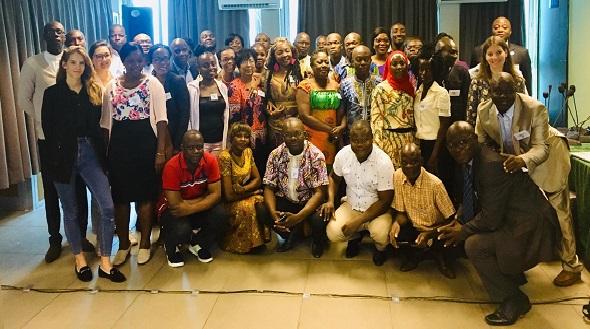
Article(s)
A Training on Advocacy for the Abolition of the Death Penalty in Sub-Saharan Africa
By Abdoul Razak Ahmadou Youssoufou, on 29 July 2019
The World Coalition Against the Death Penalty in partnership with FIACAT, and their local members ACAT Cameroon and Droits et Paix (Rights and Peace), organized a continental training course in July on advocacy for the abolition of the death penalty in sub-Saharan Africa in Douala, Cameroon. This training brought together abolitionists and experts from 23 African countries.
2019
Cameroon

Article(s)
Armenia and Angola Commit to Irreversible Abolition
By Aurelie Placais, on 4 October 2019
Following the United Nations Treaty Event in New York, two more states have committed to irreversible abolition of the death penalty by signing and ratifying the Second Optional Protocol to the International Covenant on Civil and Political Rights, aiming at the abolition of the death penalty (OP2-ICCPR). The Protocol was highlighted by the United Nations […]
2019
Angola
Armenia
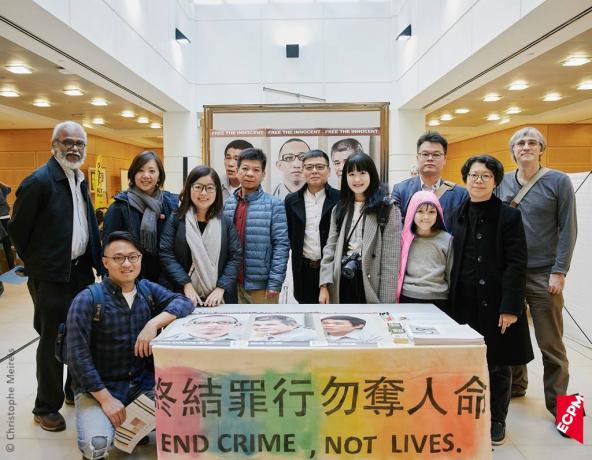
Article(s)
The Undercurrent: How we took part in the 7th World Congress Against the Death Penalty
By Wang Peiqi (Executive Secretary of the Taiwan Alliance to End the Death Penalty (TAEDP)), on 7 October 2019
As night fell, Xu Ziqiang and Zheng Xingze boarded a plane for Dubai together with a group of TAEDP members. Belgium was their final destination following this layover. This would be Ziqian’s and Xingze’s first time on European soil; they were preparing to take part in the World Congress Against the Death Penalty, held once every three years.
2019
Taiwan

Article(s)
Joint Statement on Malaysia
By World Coalition Against the Death Penalty, on 10 October 2019
As we mark the 17th World Day against the Death Penalty, a year after the government of Malaysia announced the revision of the country’s laws to fully abolish the death penalty on 10 October, we, member organizations of the World Coalition Against the Death Penalty: • Positively note the support by Malaysia for the seventh […]
2019
Malaysia
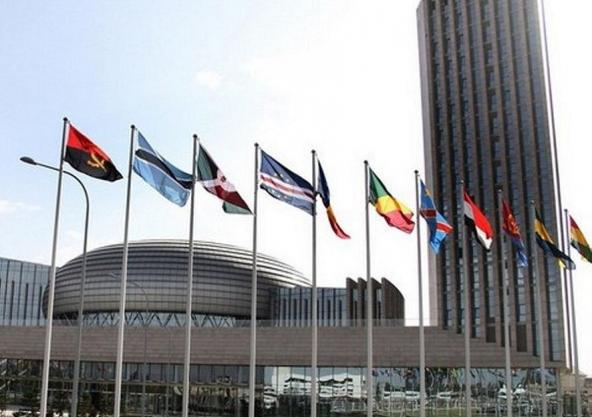
Article(s)
Awareness Building Workshop with African Union Members
By Bronwyn Dudley, on 14 May 2019
The end of March saw a first of its kind awareness-building workshop in Addis-Ababa, Ethiopia for the permanent French-speaking members to the African Union. Moderated by the ACHPR’s Working Group on the Death Penalty and Extrajudicial, Summary of Arbitrary Killings in Africa in close collaboration with FIACAT, the World Coalition and the Organisation International de la Francophonie (OIF), the training focused on raising awareness of the Draft Protocol on the Abolition of the Death Penalty.
2019
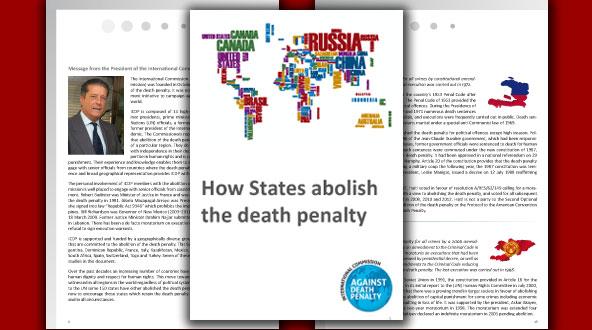
Article(s)
Study explores variety of national paths to abolition
By Thomas Hubert, on 3 May 2013
From courageous political leaders to traditional African values, the International Commission against the Death Penalty’s analysis of the factors leading to the abolition of capital punishment in 13 countries offers advice to retentionist countries.
2013
Cambodia
Haiti
Mongolia
Norway
Public Opinion
Rwanda
Senegal
South Africa
United States
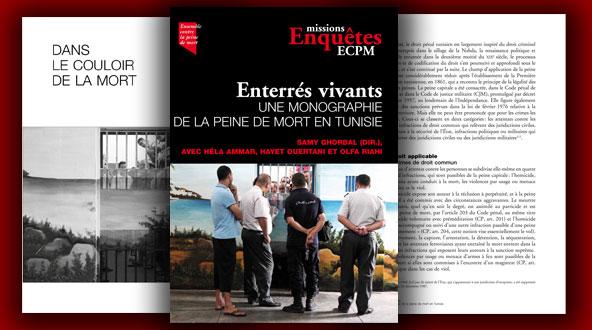
Article(s)
Inside Tunisia’s death row
By Delphine Judith, on 4 June 2013
Following the launch of the investigative report Buried alive: a study of the death penalty in Tunisia is launched, ECPM’s Middle East and North Africa officer Nicolas Bray presents the research carried out in December 2012.
2013
Death Row Conditions
Tunisia
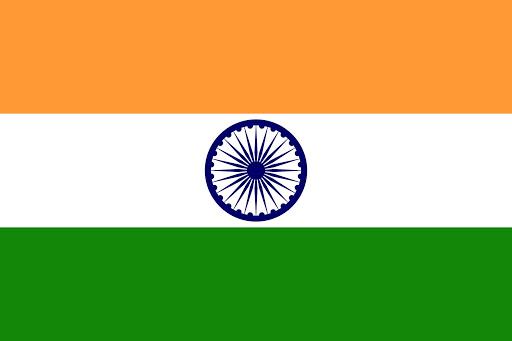
Article(s)
Punishing Sex Crimes: The Evolution of the Death Penalty in India
By Hédia Zaalouni, on 21 April 2020
The Death Penalty in India: Annual Statistics, an annual report published in January 2020 by Project 39A, details the application of the death penalty in India during the year 2019. It also describes developments in criminal justice and policy in the country.
2020
India
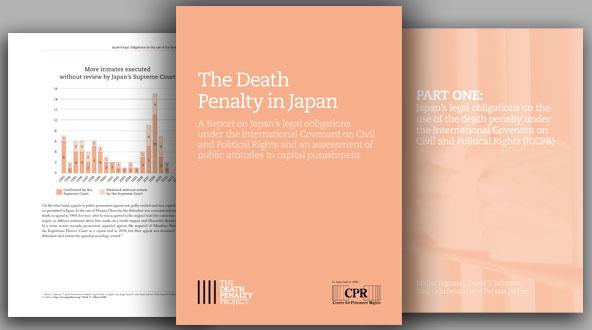
Article(s)
Japan in breach of international standards, opinion wavering – study
By Thomas Hubert, on 14 March 2013
A report published by the Death Penalty Project and the Center for Prisoners’ Rights shows that Japanese law and practice on capital punishment violate international treaties, and questions the high level of public support for the death penalty reported by the authorities.
2013
Japan
Public Opinion
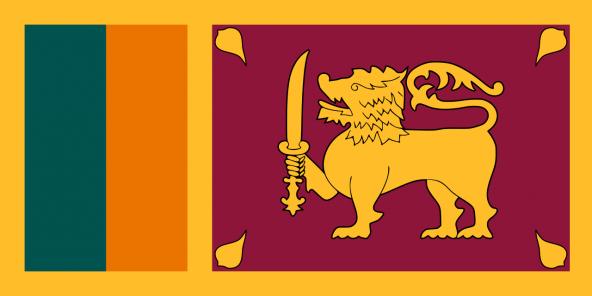
Article(s)
Joint Open Letter to the President of Sri Lanka on the Imminent Resumption of Executions
By World Coalition Against the Death Penalty, on 2 July 2019
The letter, co-signed by 58 organizations, encourages the President of Sri Lanka to do everything in his power to stop executions in Sri Lanka and consign the death penalty to the history books.
2019
Sri Lanka
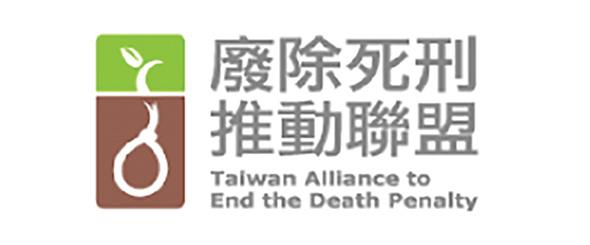
Article(s)
TAEDP Withdraws from Ministry of Justice’s Task Force to Research the Gradual Abolition of the Death Penalty
By TAEDP, on 30 April 2020
TAEDP Press Release, April 2, 2020The Taiwan Alliance to End the Death Penalty made this decision after the Ministry of Justice, in total disregard for the rule of law, arbitrarily and illegally executed a death row inmate on April 1, 2020.
2020
Taiwan
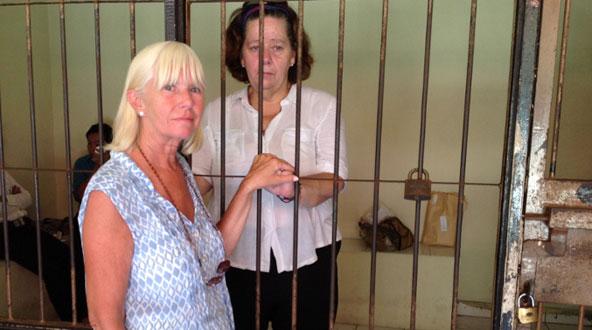
Article(s)
Briton’s death sentence puts Indonesians at risk
By KontraS, on 31 January 2013
The World Coalition’s Indonesian member organization KontraS has raised the international consequences of Lindsay Sandiford’s high-profile capital case in an opinion article published by the Jakarta Globe newspaper, calling on the country to abolish the death penalty.
2013
Drug Offenses
Indonesia
Moratorium
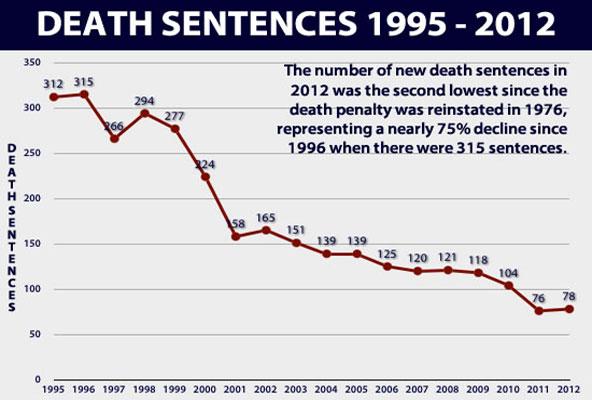
Article(s)
American death penalty area shrank further in 2012
By Thomas Hubert, on 20 December 2012
Only nine US states carried out executions this year, the lowest number in 20 years, according to a new report released by the independent organisation Death Penalty Information Center (DPIC).
2012
United States
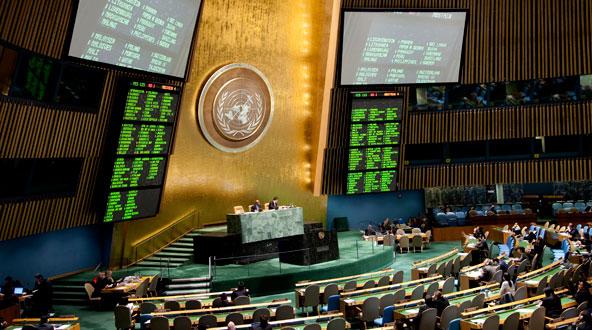
Article(s)
How to work with international bodies?
By Maria Donatelli, on 10 June 2013
The World Coalition is taking part in a workshop on mutual work relationships between international organisations and civil society at the 5th World Congress Against the Death Penalty. Here are tips for activists who would like to work with UN and regional bodies.
2013
Document(s)
Politics of International Advocacy Against the Death Penalty: Governments as Anti–Death Penalty Crusaders
By Mai Sato, on 1 September 2022
2022
Academic report
More details See the document
Two-thirds of the countries worldwide have moved away from the death penalty in law or in practice, with global and regional organisations as well as individual governments working towards universal abolition. This article critically examines the narratives of these abolitionist governments that have abolished the death penalty in their country and have adopted the role of ‘moral crusaders’ (Becker 1963) in pursuit of global abolition. In 2018, the Australian Government, while being surrounded by retentionist states in Asia, joined the anti–death penalty enterprise along with the European Union, the United Kingdom and Norway. Using the concepts of ‘moral crusader’ (Becker 1963) and ‘performativity’ (Butler 1993), this article argues that advocacy must be acted on repeatedly for governments to be anti–death penalty advocates. Otherwise, these government efforts serve political ends in appearance but are simply a self-serving form of advocacy in practice.
This article was first published in Crime Justice Journal: https://www.crimejusticejournal.com/issue/view/119
- Document type Academic report

Article(s)
Sudan Repeals Capital Punishment for Homosexuality
By Louis Linel, on 31 July 2020
Sudan repealed the death penalty for homosexuality and apostasy
2020
Sudan
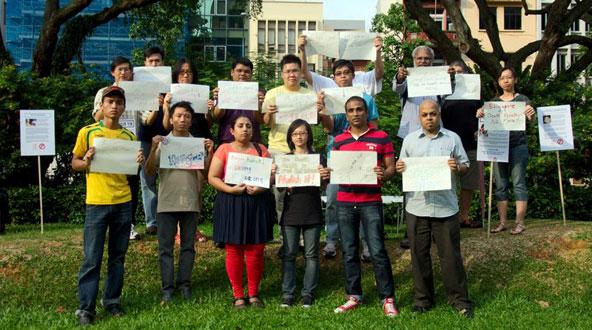
Article(s)
Migrant workers facing capital punishment show need for alternative sentences
By Think Centre, on 26 April 2012
Four Singapore-based organisations denounce the high risk of miscarriage of justice in recent death sentences handed down on poor immigrants and calls for the abolition of the death penalty in the city-state.
2012
Cruel, Inhuman and Degrading Treatment and Punishment
Moratorium
Singapore
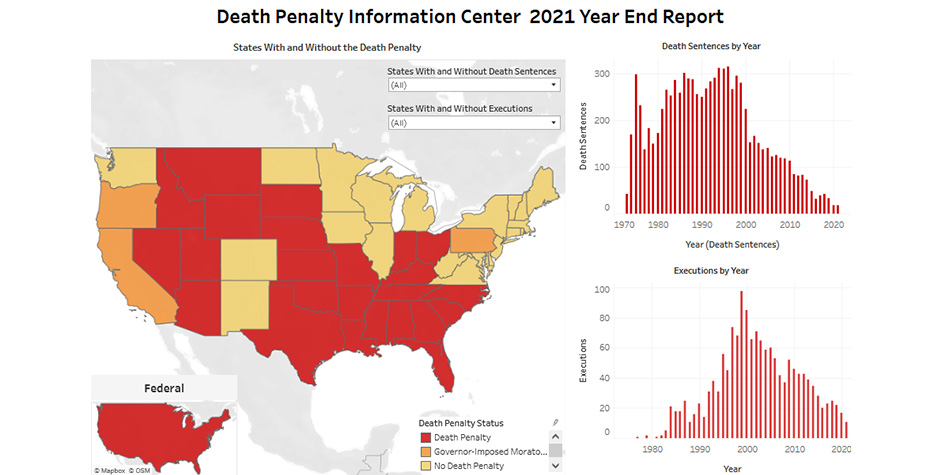
Article(s)
Executions and Death Sentences Near Record Lows in 2021 in the USA
By Death Penalty Information Center, on 13 January 2022
Virginia’s historic abolition of the death penalty highlighted a year in which public opinion polls, executions, and new death sentences all signaled continued erosion of support for capital punishment across the United States.
2022
Public Opinion
United States

Article(s)
Statement on the occasion of the adoption of the upr report of Lebanon
By Ensemble contre la peine de mort (ECPM), on 2 August 2021
We welcome Lebanon’s position in accepting some of the recommendations on strengthening the justice sector and improving strengthening the justice sector and those aimed at improving the conditions of detention, including the fight against acts of torture and ill-treatment.
2021
Lebanon
Moratorium
Member(s)
Mouvance des Abolitionnistes du Congo Brazzaville
on 30 April 2020
Mandate and Objectives: – Promote fundamental human rights : LIFE , EDUCATION, ACCESS TO WATER AND ELECTRICITY – Making human rights in daily lives – Fighting for universal abolition of the death penalty, starting in Congo Brazzaville by a national moratorium Types of action: – Exhibitions and screenings – Lectures, discussion and citizen petition, Sit-in […]
2020
Congo

Member(s)
Association Justice et Miséricorde (AJEM)
on 30 April 2020
The Association Justice and Mercy (AJEM) is a Lebanese nonprofit, nonpolitical and nonsectarian nongovernmental organization (NGO) created in 1996 at the initiative of a group of social workers. AJEM deals mainly with the right of prisoners in Lebanon, and more generally with human rights, the fight against torture and other cruel, inhuman and degrading treatment, […]
Lebanon
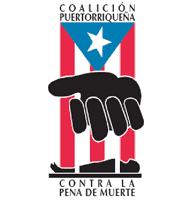
Member(s)
Puerto Rican Coalition Against Death Penalty
on 30 April 2020
The Puerto Rican Coalition against the Death Penalty (PCADP) is a non-party, non-sectarian organisation incorporated in Puerto Rico in March 2005 to promote the elimination of the capital punishment.The PCADP aims to join efforts among the different abolitionist organisations and activists in Puerto Rico. Its Statement of Principles emphasises that it does not believe in […]
Puerto Rico

Member(s)
Comité des Observateurs des Droits de l’Homme (CODHO)
on 30 April 2020
On 1 July 1997 a group of lawyers, economists and political scientists from the Democratic Republic of Congo (DRC) held a meeting following the massacre of children by militiamen in North Kivu in the east of the country. Revolted by this unspoken tragedy, they decided to set up the Committee of Human Rights Monitors (Codho). […]
Democratic Republic of the Congo
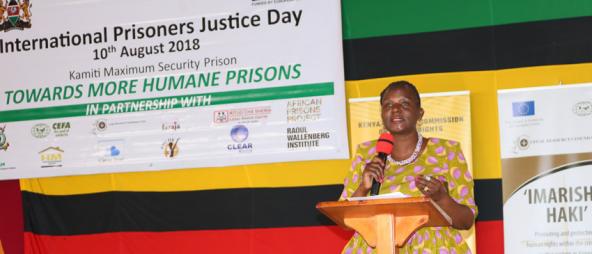
Article(s)
Kenya’s new taskforce to review death penalty laws
By Nicolas Chua, on 11 September 2018
In December 2017, two Kenyan men challenged the legality of capital punishment at the Supreme Court, which resulted in Chief Justice Marage declaring the « mandatory nature of the death sentence » unconstitutional. Following this groundbreaking statement, the Taskforce on the Review of the Mandatory Nature of the Death Penalty was appointed on March 15 2018.
2018
Kenya
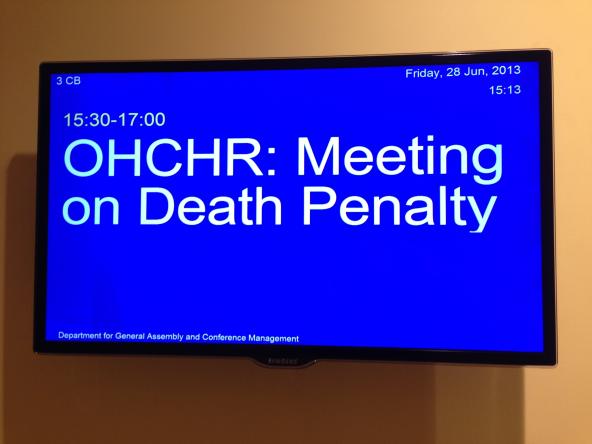
Article(s)
United Nations panel hears from innocent sentenced to death
By Maria Donatelli, on 4 July 2013
World Coalition members and a man who spent 18 years on death row for murders he did not commit joined UN Secretary General Ban Ki-Moon for a debate on capital punishment.
2013
Innocence
United States

Article(s)
Experts analyse the relationship between poverty and the death penalty
By Dr. Lina M. Torres Rivera, on 18 June 2018
The International Studies Programme Overseas Relations Assembly and the Institute for Human Rights Research and Promotion (INIPRODEH) organised a forum: The Death Penalty and Poverty on the 89th anniversary of abolition of the death penalty in Puerto Rico. Eminent figures from the abolitionist movement and academia reviewed and analysed research into this issue.
2018
Puerto Rico
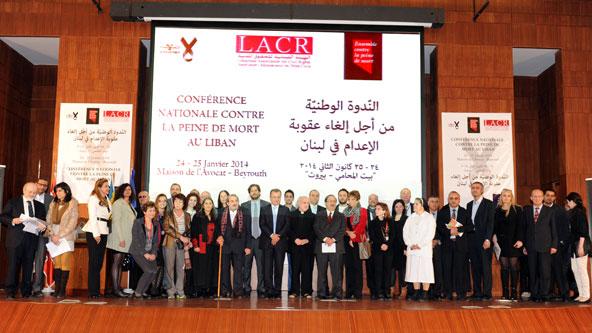
Article(s)
National conference gives Lebanese abolitionist movement a boost
By Thomas Hubert, on 14 February 2014
Several hundred activists, experts and political leaders met in Beirut at the end of January to push the abolitionist cause with the Lebanese authorities and organise their movement at the national level.
2014
Lebanon
Moratorium

